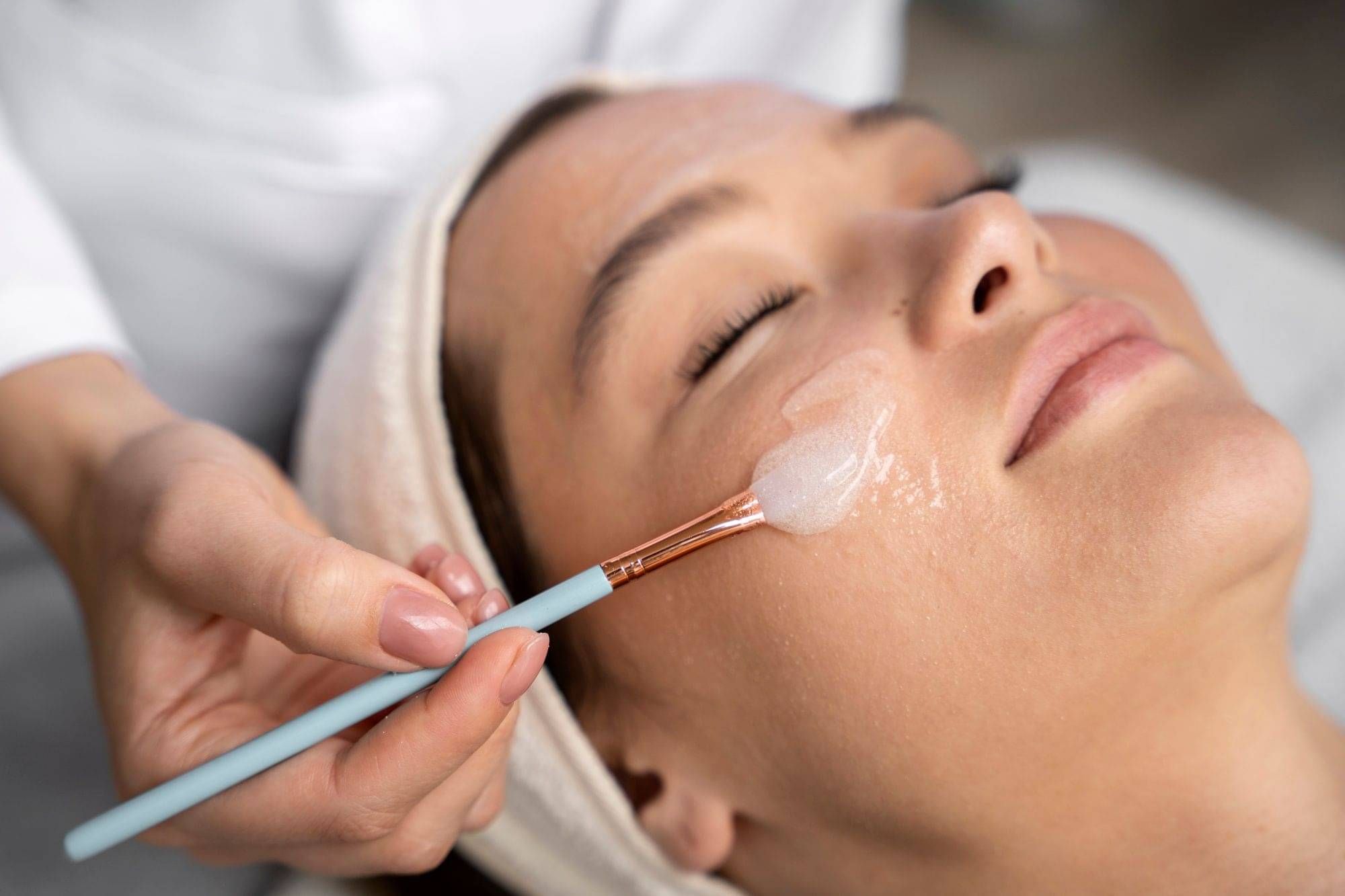Chemical Peel
Chemical peels or wounding agents are skincare treatments that involve the application of a chemical solution to the skin to exfoliate and eventually peel off the outer layers. Despite common misconceptions, chemical peels have a longstanding track record of safety and efficacy. They have been widely used for many years to resurface the skin effectively. In fact, chemical peels represent one of the simplest and most economical methods of achieving skin renewal, offering noticeable improvements in appearance with minimal to no recovery time.
It encourages the production of collagen, which helps diminish fine lines, particularly around the eyes and mouth. The outcome is revitalised skin that appears more youthful, and smoother, and shows off improved tone and texture. Chemical peels typically yield more pronounced and corrective effects compared to traditional facials.
What it Does ...
Improves skin tone and texture
Treats pimples, acne, mild acne scarring, scaling patches (due to sun damage)
Reduces fine lines and wrinkles
Lightens or controls pigmentation
Cleans pores
Promotes overall skin rejuvenation
We Offer ...
a) Superficial (or Micro) Chemical Peels
This is a suitable choice for individuals who have never had a medical grade chemical peel, or people looking for mild correction and skin care maintenance. Superficial peels have minimal downtime. They are appropriate for all skin types, including dark skin. This treatment uses the mildest form of chemical solution, so it does not bleach the skin. The benefits of a micro peel may be apparent after a single session, but a series of treatments is generally required to achieve optimal skin rejuvenation.
A Micro Peel 3-step treatment process includes: 1. Dead Skin Cell Removal, 2. Removal of Debris with Chemical Solution, and 3. Cryogenic Therapy.
➢ Jessner's Peel
The exfoliation of the skin is produced by a combination of resorcinol, salicylic acid and lactic acid.
Deeper penetration of outer layers than other superficial peels
Treats mild or severe acne, sun damage, mild to moderate wrinkles and discolouration
Get smoother texture and even-looking skin
Used on hands, neck and upper chest where skin is thin
Great for oily skin types, helping to control oil production, on acne-prone and congested skin
➢ Salicylic Acid Peel
Salicylic Acid has anti-inflammatory properties that reduce redness and irritation from breakouts. However, clients with sensitivity to aspirin are contraindicated for the use of salicylic acid. It is great for oily skin types prone to acne breakouts.
➢ Glycolic Acid Peel
This peel removes excess sebum and dead skin cells to reveal smoother, brighter, younger looking skin.
Reduces pigmentation
Evens out skin tone
Smooths fine lines and wrinkles
Adds glow and lustre to skin
b) Medium to Deep Peels
The deeper the peel, the greater the results and skin rejuvenation. It also means more down time due to increased skin sensitivity, redness, inflammation, skin peeling and healing. While micro peels are not appropriate for treating deep scars or deep wrinkles, deeper chemical peel solutions using trichloroacetic acid or phenol may be used.
➢ Trichloroacetic Acid Peels (TCA)
TCA peels are a great choice for advanced pigment irregularities, sun damage, deeper wrinkles and acne scars.

You Can Add On…
Dermaplaning – for smoother and brighter-looking skin
Jessner’s / Glycolic Acid Peel + TCA - Improved depth of penetration and evener skin tone
Considerations…
Clinical Peels are not the same as over-the-counter (OTC) or do-it-yourself (DIY) home peel kits that may possibly be purchased online. For medical grade peels, a mandatory consultation with the physician is required. 4-6 weeks of home preparation is required prior to the peel.
Chemical peels are not recommended for pregnant or lactating women or anyone who has taken Accutane in the last year. Tretinoin (AKA: Retin-A), Retinols and any face waxing need to be stopped one week prior to chemical peels.
Moreover, prior to the treatment, it is recommended that you:
Quit smoking (to enhance blood circulation to your skin)
Avoid products containing aspirin or salicylic acid
Refrain from using daily skincare items that contain glycolic acid
Stay away from sunbathing and tanning beds
Avoid collagen injections
Refrain from facial waxing